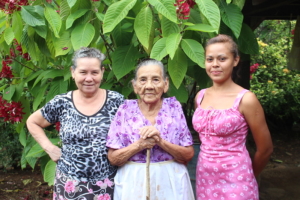USAID Programs in El Salvador
 With a population of only 6.3 million as of 2022, El Salvador is the smallest country in Central America. Despite this, it continues to face large economic problems, ranking as the second slowest economic growth rate in Central America.
With a population of only 6.3 million as of 2022, El Salvador is the smallest country in Central America. Despite this, it continues to face large economic problems, ranking as the second slowest economic growth rate in Central America.
Over the years, El Salvador has faced various fluctuations in economic stability. In 2020, the country’s Gross Domestic Product (GDP) dropped from 2.5% to -7.9%, a result of the COVID-19 pandemic’s adverse effects on job opportunities and poverty rates.
Even after the GDP stabilized in 2022, El Salvador continues to face fiscal sustainability issues, increasing extreme poverty rates from 0.38% to 0.39%.
USAID in El Salvador
The United States Agency for International Development (USAID) uses the Integrated Food Security Phase Classification (IPC) to analyze how critical a nation’s food insecurity is. Nations are classified from Phase 1 to Phase 5, where Phase 1 is minimal and Phase 5 is famine.
Before the end of 2022, heavy rainfall and flooding caused an extreme humanitarian crisis, impacting millions of people in Central America. This led to an increase in food insecurity, changing the rankings of El Salvador, Guatemala, and Honduras in an IPC Phase 3 Crisis or worse.
With the assistance of programs from USAID, positive strides have been made to provide economic and humanitarian growth in El Salvador. These programs provide support for gender-based violence, children’s education and increase funding for humanitarian needs, especially in extreme crises. With natural disaster initiatives, USAID has contributed approximately $400 million to the rehabilitation and rebuilding of damaged infrastructures in El Salvador.
Economic Competitiveness Project
According to USAID, providing ample job opportunities through job creation and placement is vital to preventing irregular migration, boosting trade and offering educational support.
The Economic Competitiveness Project, a $47.8 million program, aims to provide micro, small and medium enterprises with support to economically grow their businesses through competitive “innovation and technological development.” This not only encourages businesses to grow intellectually but to boost trade and raise income. With more programs to increase employment opportunities and thus reduce poverty, the inclination to engage in crime is greatly reduced.
Gloria de Kriete Foundation
USAID has also partnered with the Gloria de Kriete Foundation to provide $14.2 million to academically gifted children for increased access to educational support. This has been used to positively change more than 2,100 students’ lives via funding for scholarships, financial aid and other educational needs. With this partnership, young residents of El Salvador have become more prepared to pursue post-academic job opportunities.
Citizen Security
USAID programs in El Salvador also work to prevent violence by partnering with community organizations to establish after-school programs that educate and rehabilitate youth and provide them with a safe space to learn and grow.
While El Salvador recorded high crime rates with 103 homicides per 100,000 residents in 2015, police efforts have caused rates to rapidly decrease by 56.8% due to a “widespread crackdown on gang violence” in 2022.
USAID programs, such as Citizen Security Project and NIDO: Building Safe Communities, work to deter children from crime. With $43 million in support, the Citizen Security Project offers after-school programs for past criminal offenders. This helps rehabilitate, educate and offer support for youth. The NIDO project partners with Glasswing International to integrate youth into after-school programs that help provide citizen security through various training exercises.
These programs, along with the tireless efforts of the El Salvadorian government and police force, have resulted in a substantial decrease in homicide rates to 15 per 100,000 residents and an increased trust of security officials and policemen by 20%.
Humanitarian Assistance
El Salvadorans are at a 95.4% risk of natural disasters. USAID is now allocating $42.5 million to provide crisis support for El Salvador, Guatemala and Honduras during natural disasters. These funds also include assisting in the prevention of food insecurity through donating food and providing shelters for protection against violence.
Through this aid, millions of people in Central America can also receive assistance for the restoration of crops and other needs. Allocating funds has worked to aid in disaster relief for years. During Tropical Storms 12-E in 2011 and Amanda in May 2020 USAID workers provided countless hours of assistance for “temporary shelters, water, hygiene kits and temporary educational and recreational activities in shelters.”
Looking Toward the Future
USAID has worked to help the people in El Salvador for decades and has only increased its support since COVID-19.
With various USAID programs in El Salvador committed to growing safe, sustainable communities, the future continues to brighten. Economic growth continues to rise with the investment into young academic futures. Violent crime rates are plummeting. While there is still room for economic growth, USAID programs continue to make strides in fostering a brighter tomorrow for the people of El Salvador.
– Kristina Gaffney
Photo: Flickr
